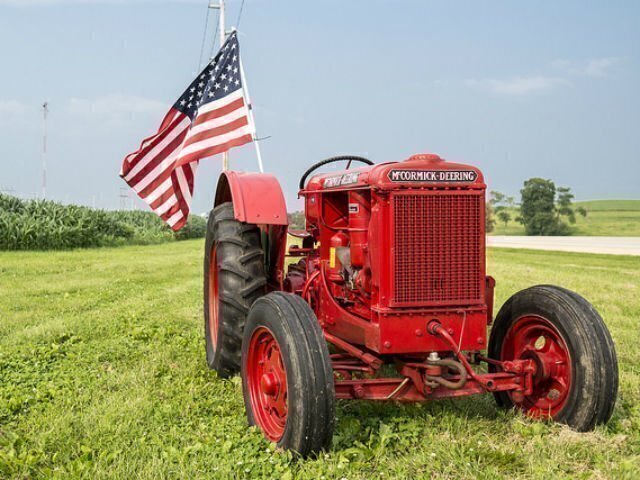
With only days left before the Iowa Caucuses on February 1, the media is saturated with speculation, polls, and discussions about the first primary contest in the nation.
The Iowa caucus and the New Hampshire primary, held this year on February 9, are seen as crucial, potentially game-changing events in the presidential nominating process. For decades, Iowa and New Hampshire have been the first states to kick off the presidential campaign. But why do these seemingly random states with comparatively small populations have the privilege of voting before the other 48?
The story of the Iowa caucus goes back to the 1968 Democratic National Convention. At that infamous event in Chicago, Hubert Humphrey was nominated by the Democratic Party bosses, who at this time were largely in control of the nominating process. The lack of democratic accountability among party elites, combined with widespread frustration about President Lyndon Johnson’s policies regarding the war in Vietnam, culminated in chaotic protests and riots.
In an attempt to avoid the public anger exhibited that year, party officials changed the presidential nomination process to make it more transparent and democratically accountable. Part of the new rules established by the Democratic National Committee were scheduling guidelines that required at least 30 days between major state and local political processes.
In 1972, there we no available hotel rooms in Des Moines for the week when the Iowa Democratic State Convention was going to be held, so it was moved up earlier in the calendar. This change, combined with the new 30-day waiting period, meant that the Democratic caucus would be scheduled for January 24—the first nominating contest of the cycle.
George McGovern, the eventual Democratic nominee, realized the opportunity that Iowa’s first-in-the-nation status could provide to his campaign, and dedicated time and resources to campaigning in the state. In 1976, after the Republican Party in Iowa realized the potential influence and exposure the state could have in the nominating process by going first, it planned its caucus on the same day as that of the Democrats.
Since 1976, both parties have held their first presidential nominating contests in Iowa, and the Iowa state legislature passed a law saying that its caucuses need to be held at least eight days before any other nominating contest.
While Iowa holds the nation’s first presidential nominating contest, New Hampshire holds the nation’s first primary election. (For a brief reminder of the differences between primaries and caucuses, check out an earlier post by the author.)
The New Hampshire primary has a rich history that goes back to 1920. Since then, it has had the privilege of being the first presidential primary election in the nation, though a change in voting rules and procedures in 1949 ensured that the 1952 primary was the first time the election developed its nationwide importance. After 1968, New Hampshire lawmakers passed a law ensuring that the primary was to be held before any other “similar contest” and gave state officials the power to change the date of the primary to enforce this policy. The phrase “similar contest” in the New Hampshire statute refers to other primary elections but not caucuses, allowing Iowa to hold its caucus earlier than the New Hampshire primaries.
While the number of delegates a candidate can win in either state is relatively small, candidates who perform well in Iowa or New Hampshire benefit from positive media coverage, early momentum, and often end up winning their party’s nomination.
Some commentators have expressed dissatisfaction over the power that Iowa and New Hampshire hold in the nominating process. One particular gripe is that the demographic makeups of Iowa and New Hampshire are far from analogous to that of America writ large. Others lament that candidates are pressured to support particular special interests in Iowa and New Hampshire in order to garner support on the ground and perform well in the state.
Despite these worries, the quadrennial pilgrimage of presidential candidates and the press corps to the Hawkeye and Granite States has become a part of the American democratic experience. Yes, some deride the frantic media coverage of the Iowa caucuses and New Hampshire primaries, or assert that the process should be restructured. But President Obama recently summed up the sentiments of many when reflecting on Iowa’s first-in-the-nation caucus: “It felt to me like the best example of what democracy should be.”
Jonathan Stahl is an intern at the National Constitution Center. He is also a senior at the University of Pennsylvania, majoring in politics, philosophy and economics.







